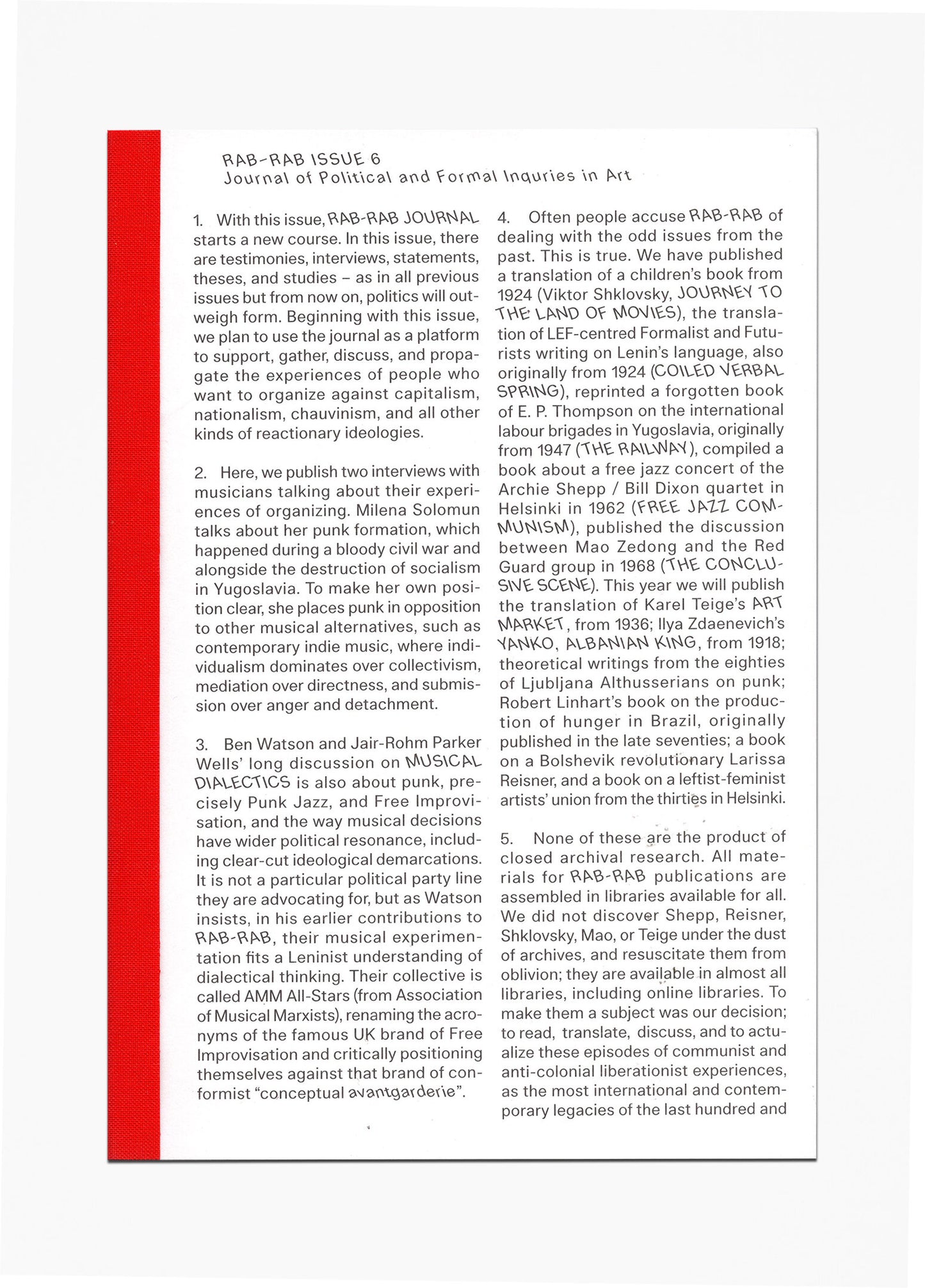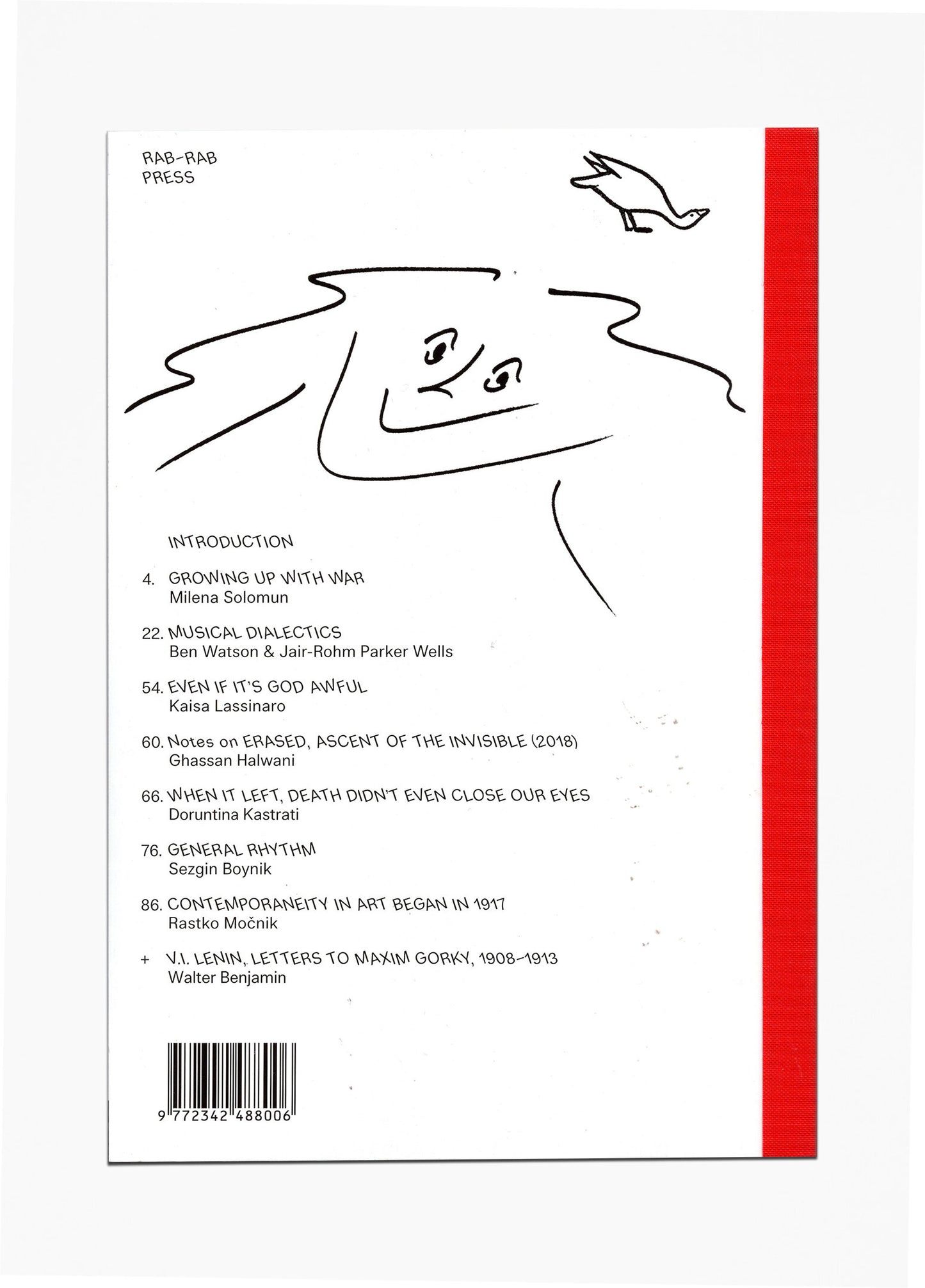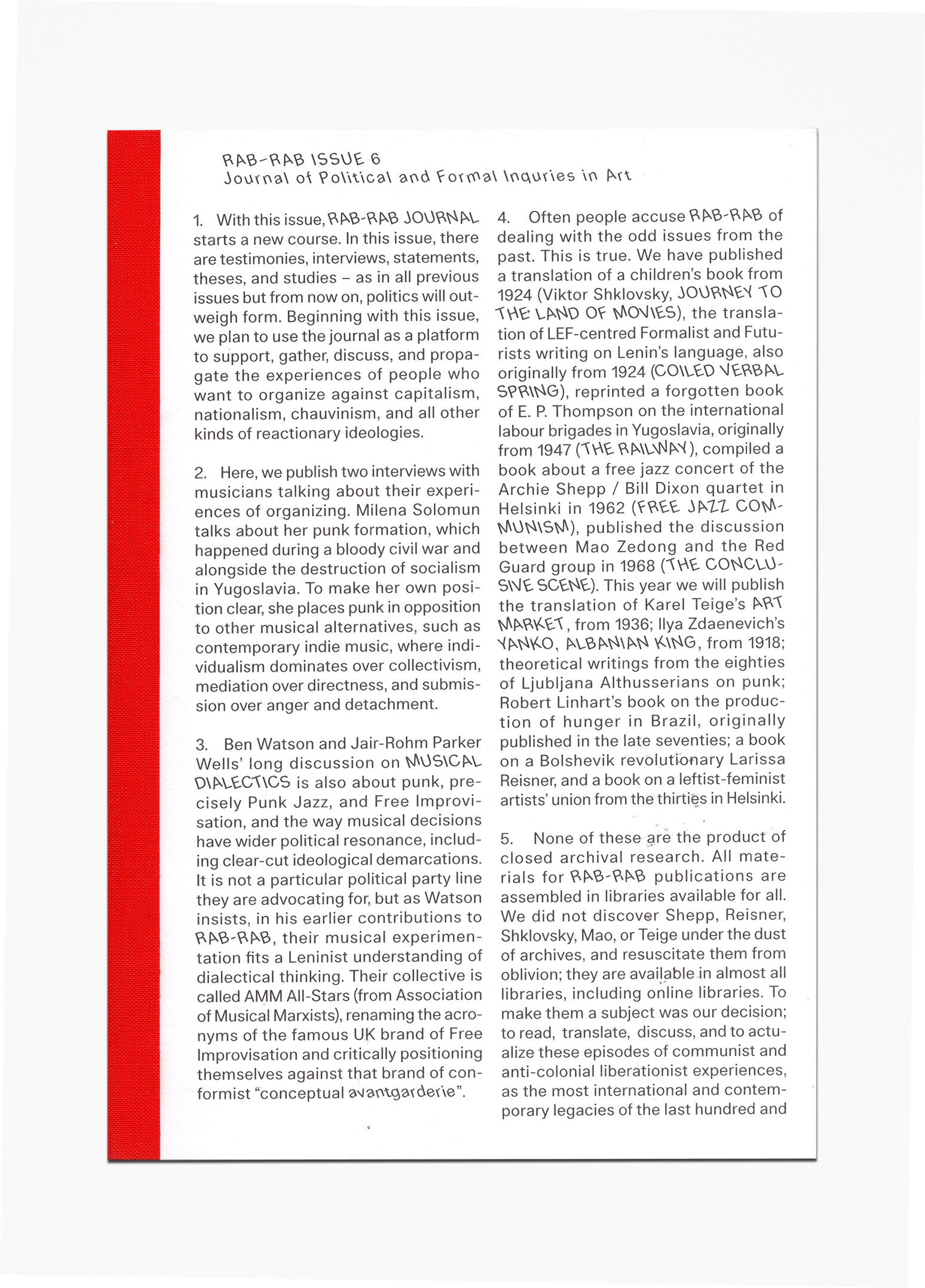RAB-RAB Journal Issue #6
RAB-RAB Journal Issue #6
Couldn't load pickup availability
Rab-Rab: journal of political and formal inquiries in art is starting a new course. Beginning with this issue, we plan to use the journal as a platform to support, gather, discuss, and propagate the experiences of people who want to organize against capitalism, nationalism, chauvinism, and all other kinds of reactionary ideologies. There are testimonies, interviews, statements, theses and studies – as in all previous issues – but from now on, politics will outweigh form.
Here, we publish two interviews with musicians discussing their experiences with organizing. Milena Solomun talks about her punk formation, which took place during a bloody civil war and alongside the destruction of socialism in Yugoslavia. Ben Watson and Jair-Rohm Parker Wells’ long discussion on Musical Dialectics is also about punk, precisely Punk Jazz and Free Improvisation, and the way musical decisions have wider political resonance, including clear-cut ideological demarcations. Their collective is called AMM All-Stars (from the Association of Musical Marxists).
Kaisa Lassinaro looks at a library collection of feminist and lesbian literature, and asks what it means to read these materials with explicit political and Marxist references? Ghassan Halwani gives a condensed summary of a long and ongoing activist interaction with archives through the defamiliarization of memoirs from the Civil War in Lebanon; beyond the ideologies of liberal reconciliation.
From this issue, Rab-Rab journal initiates a research project dedicated to studying laws of uneven and combined development in contemporary art. The transcript of two interviews from Doruntina Kastrati’s film is a case in point. Kastrati’s film about workers who were seriously injured and, in some cases, died while working for a one euro hourly pay rate on the highway in Kosovo for the most powerful companies, can be understood through the laws of uneven and combined development.
The long theoretical article by Rastko Močnik on the ideologies of contemporary art, that we are proud to publish here, especially addresses these forms. Močnik’s real target is the prevalence of reactionary and conservative ideas in contemporary art practices which, historically, were established by relativizing the revolutions of avant-garde art.
Following this, we initiate a rubric called ‘General Rhythm.’ By understanding form as a sedimented content, we propose a method of objective form that will enable us to discern the general rhythms of society beneath the cacophony of capitalist unevenness and contradiction. We apply this approach modestly to a few local examples in Finland (Mika Vainio exhibition, Sorbus gallery publication, Veijo Rönkkönen sculptures, Edvard Richter award) and are satisfied with the results. In the following issues, this will be developed into a full-scale research project in collaboration with theoreticians, activists, artists and curators from all around the world.
As a supplement to this issue, we are publishing the first English translation of Walter Benjamin’s text on Lenin, actually Benjamin’s review of Lenin’s letters to Maxim Gorky, originally from 1926. Translated by Esther Leslie, who also annotated the text, Benjamin’s review portrays a different Lenin, one whose personal life is not detached from his revolutionary politics; the Lenin of subjective politics.
Published by RAB-RAB Press in 2021.
Softcover, 86 pages with mini-zine insert.
Size: 6 x 8.75 inches.



